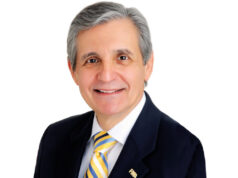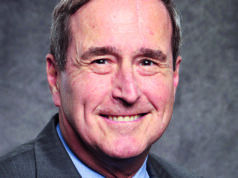 Coaching, institutional and cultural changes, advocacy, identifying issues and banding together all can play a part in vascular surgeons’ avoiding burnout and achieving wellness. These were among the themes to come out of Invited Session 6, “Enhancing wellness in times of chaos during,” as part of SVS ONLINE on July 1.
Coaching, institutional and cultural changes, advocacy, identifying issues and banding together all can play a part in vascular surgeons’ avoiding burnout and achieving wellness. These were among the themes to come out of Invited Session 6, “Enhancing wellness in times of chaos during,” as part of SVS ONLINE on July 1.
Three talks and a subsequent panel discussion examined wellness and chaos, covering various facets of the problem and possible solutions. Dawn M. Coleman, MD, co-chair of the Society for Vascular Surgery (SVS) Wellness Task Force, moderated the session.
“Many of the most talented and passionate are at the highest risk of burnout,” said Jeffrey Smith, MD, a former surgeon and now a certified professional coach. He formed SurgeonMasters, which assists the Task Force with wellness issues. Back and neck issues and growing cynicism prompted him to drop surgery, a profession he had loved, and become a surgical coach instead.
Coaching, he said, addresses the “physical, mental and emotional toll of being a surgeon. … It can turn anxiety into a healthy anxiety,” he said. “We need to practice healthier coping strategies, have peer support, maintain connections and get coaching.”
Lack of personal time plus overall work demands and stress are the top reasons why 26% of respondents to a national surgical workforce survey would consider leaving their practices within two years. The figure excluded those who would simply retire. At the same time, 80% would choose surgery again, said Julie Freischlag, MD, CEO and dean at Wake Forest Medicine and Wake Forest Baptist Health in North Carolina.
She suggested several leader-led initiatives. Initiate parental leave, create lactation rooms and faculty lounges, permit working from home—“COVID has taught us it does work,” she said—create year-long on-call schedules and expect staff to take vacations. Create pleasant traditions such as parties, book clubs, awards and family picnics.
“Highlight the next layer of people in your institution by allowing them to run service lines and ORs [operating rooms]. They’ll feel valued.” She repeated the adage, “you must be the change you want to see in the world.” She urged: “Do that with actions. Be that change.”
The government, said Margaret Tracci, MD, of the University of Virginia and chair of the SVS Government Relations Committee, creates many of the practice burdens that contribute to burnout.
They include “electronic health records, prior authorization and E & M (evaluation and management) documentation, barriers to telemedicine … the cumulative burden of administrative chores,” she said. “There’s unity in the House of Medicine” that something has to give. And more stressors loom, including workforce shortages, an aging population and medical school debt.
Coronavirus has exacerbated financial concerns, already building over the past two to three decades, she added. “Vascular surgeons are intensely concerned about the financial impact on families, staff and the community.” In addition, Medicare reimbursement cuts of an estimated 7–8% scheduled to take effect Jan. 1, 2021, are coming at the worst possible time, she said. “We can’t solve these problems alone and must seek external change,” she said.
SVS’ policy and advocacy groups are pushing back, said Tracci, with efforts that include personal protective equipment supplies, records reform, trainee debt relief, legislative fixes to regulatory burdens and more. SVS has joined a Surgical Care Coalition with other surgical groups to fight the upcoming Medicare. Contributions to the SVS Political Action Committee have “never been more important,” said Tracci.
Panelists offered some suggestions. SVS Wellness Task Force co-chair Malachi Sheahan III, MD, acknowledged “endlessly juggling” and, like many of his colleagues, worrying about meeting both personal and professional priorities. In the end, he said, a person’s most important choices are “your spouse and your job—your partners,” he said. “If you trust your partners, you won’t be worried about the details and you’ll have a better life.”
Smith advocated getting others involved. “You need more than one voice” to make an impact. Several urged participating in advocacy efforts. “There’s not a better time for surgeons to get involved, to run your hospital, run your clinic,” said Freischlag. “Blame it on the virus, and change it.”
Registered SVS ONLINE participants can view the session recording. Visit vsweb.org/Planner2020.












